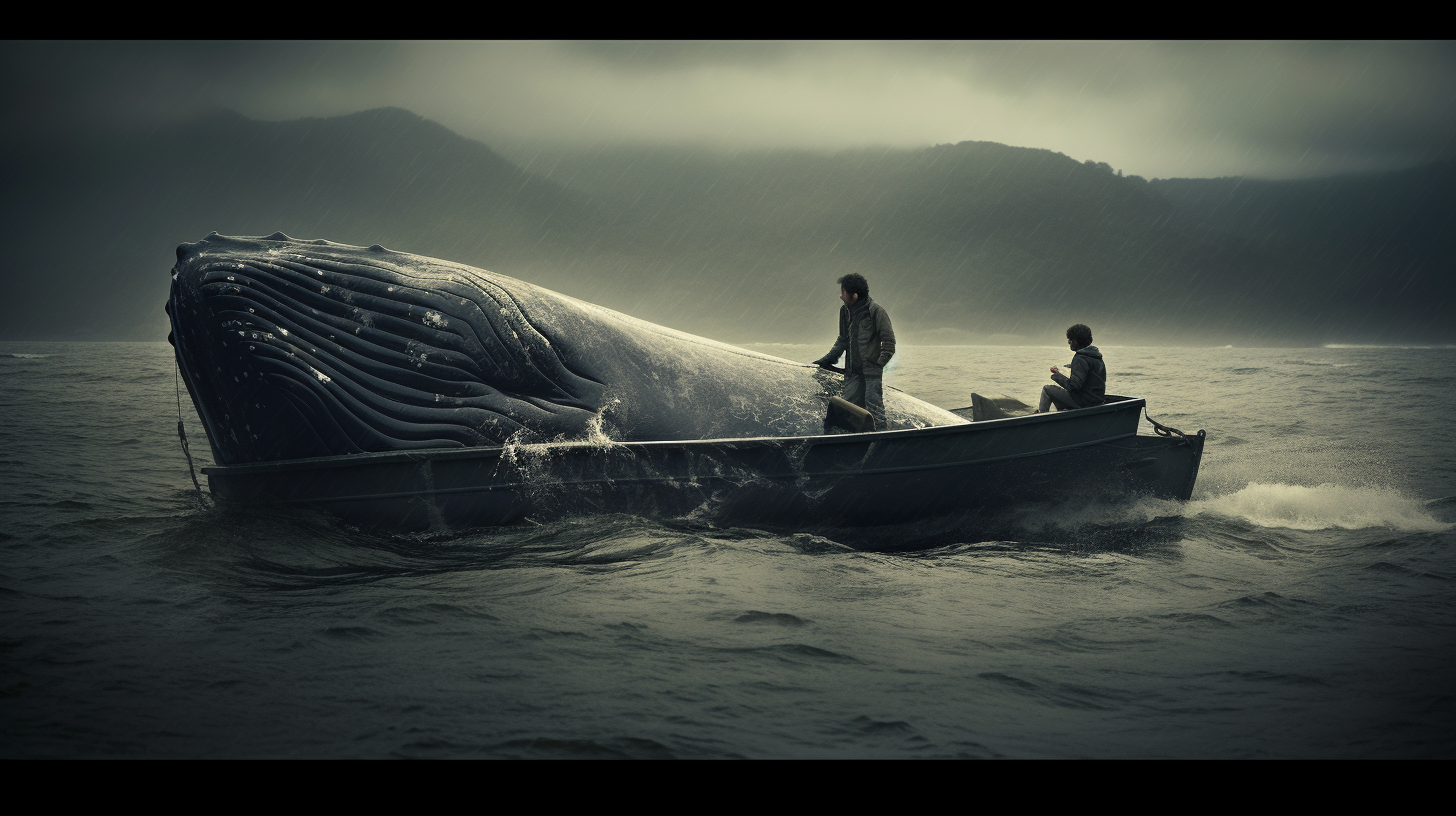It began as a mere whisper, a faint undercurrent in the otherwise bustling symphony of ocean life. Now, the oceans eerily hush, as the aquatic behemoths we’ve revered for eons have ceased their once-melodic cries; the whales have gone silent.
This cessation of song is no natural phenomenon, but rather, an omen of the tortuous imbalance we’ve wrought upon the sea’s delicate cadence. The same seas that bore the brunt of anoxia — a subject we have distressingly familiarized with in the recent ‘Oceans Gasping for Air’.
The whale’s silence signifies more than a behavioral anomaly; it is the death knell for what was once a marine utopia. The giants of the deep rely on their serenades for mating, hunting, and navigating the vast blue expanse — now all disrupted by human-induced climate peril.
These majestic creatures are muted by myriad assaults: the acidified waters that gnaw at their health, the plastic waste that turns their homes into aquatic graveyards, and the relentless din of ship traffic that drowns out their once-penetrating calls. How tragically ironic that we now yearn for the very sounds we’ve systematically silenced.
Let us not forget the harrowing images from ‘Swallowed Shores’—our eroding coastlines, the casualty of indiscretion. What impacts the land invariably bleeds into the ocean. The coral graveyards beneath the waves are but pages in a larger, grimmer narrative of ecological neglect.
Researchers are scrambling for answers, but their efforts bear a grim semblance to a requiem. The whales’ songs are central to their existence, and without them, population declines are not just a possibility but an impending certainty. Measures like maritime law reform and noise reduction protocols have been suggested — yet they seem like whispers against a tempest.
Weaving through the tragic tapestry, some threads offer a semblance of rebellion against this silent fate. Conservationists and indigenous sea farers — those most attuned to the ocean’s rhythms — are raising their voices in a desperate attempt to restore balance. But can we truly amend what we’ve broken, or are we merely delaying the inevitable outcome of our planetary hubris?
It is within this cacophony of chaos and desperation that the whales, perhaps, have adopted a more poignant protest against their destruction. Their silence speaks louder than any cry, a chilling reminder that these leviathans may soon exit the stage of existence entirely, leaving behind only the echoes of their agony.
Sremain the beacon of awareness. As we echo the tales of marine desolation, one fact is starkly clear — action is no longer a choice, but a necessity. It is not just for the whales; it’s for the intricate web of life, including our very own survival.
